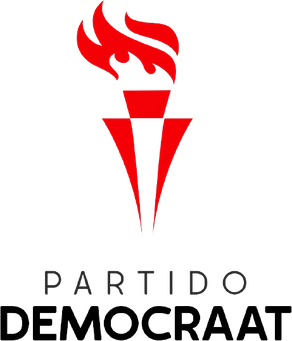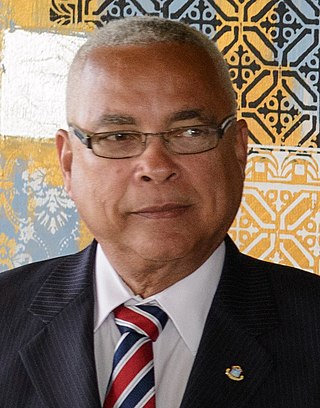
The Netherlands Antilles, also known as the Dutch Antilles, was a constituent Caribbean country of the Kingdom of the Netherlands consisting of the islands of Saba, Sint Eustatius, and Sint Maarten in the Lesser Antilles, and Aruba, Curaçao, and Bonaire in the Leeward Antilles. The country came into being in 1954 as the autonomous successor of the Dutch colony of Curaçao and Dependencies, and it was dissolved in 2010, when like Aruba in 1986, Sint Maarten and Curaçao gained status of constituent countries within the Kingdom of the Netherlands, and Saba, Sint Eustatius, and Bonaire gained status of special municipality of Netherlands as the Caribbean Netherlands. The neighboring Dutch colony of Surinam in continental South America, did not become part of the Netherlands Antilles but became a separate autonomous country in 1954. All the territories that belonged to the Netherlands Antilles remain part of the kingdom today, although the legal status of each differs. As a group they are still commonly called the Dutch Caribbean, regardless of their legal status. People from this former territory continue to be called Antilleans in the Netherlands.

The Democratic Party is a liberal party in Curaçao founded in 1944. The party has participated in elections for the Estates of the Netherlands Antilles and the Island Council of Curaçao until the dissolution of the Netherlands Antilles in 2010, obtaining a single seat in the island council in 2007.

The SSS islands, locally also known as the Windward Islands, is a collective term for the three territories of the Dutch Caribbean that are located within the Leeward Islands group of the Lesser Antilles in the Caribbean Sea. In order of population size, they are: Sint Maarten, Sint Eustatius, and Saba. In some contexts, the term is also used to refer to the entire island of Saint Martin, alongside Sint Eustatius and Saba.

The Windward Islands People's Movement (WIPM) is a political party in Saba. It has won a majority of seats in the Island Council in all but two elections since 1971.

The Netherlands Antilles was an autonomous Caribbean country within the Kingdom of the Netherlands. It was dissolved on 10 October 2010.

The Caribbean Netherlands is a geographic region of the Netherlands located outside of Europe, in the Caribbean, consisting of three special municipalities. These are the islands of Bonaire, Sint Eustatius, and Saba, as they are also known in legislation, or the BES islands for short. The islands are officially classified as public bodies in the Netherlands and as overseas territories of the European Union; as such, European Union law does not automatically apply to them.

Sint Maarten, a constituent country of the Kingdom of the Netherlands, has a government formed by the monarch, represented by the governor, and the ministers. The Prime Minister of Sint Maarten presides over the council of ministers. Executive power is exercised by the government. Legislative power is vested in both the government and parliament. The minister plenipotentiary is not part of the government and represents the Sint Maarten government in the Netherlands. The judiciary is independent of the executive and the legislature. The country is a parliamentary representative democratic country with a multi-party system. Sint Maarten has full autonomy on most matters, with the exceptions summed up in the Charter for the Kingdom of the Netherlands under the title "Kingdom affairs". The Constitution of Sint Maarten was ratified in September 2010, and entered into force on 10 October 2010.
The island council is a form of local government in special municipalities in the Caribbean Netherlands. It is similar to municipal council in the European part of the Netherlands.
A status referendum was held in Sint Eustatius on 17 December 2014. Sint Eustatius had become a Dutch public body upon the dissolution of the Netherlands Antilles in 2010, despite this not being the status voted for, and so the 2014 referendum was supported as a way to resolve this. Although a majority of those voting opted for increased autonomy within the Kingdom of the Netherlands, voter turnout was well below the 60% required for the referendum to be binding.

Marcel Faustiano Augustin Gumbs is a Sint Maarten politician who served as the 2nd Prime Minister of Sint Maarten from 2014 to 2015. He was selected as Prime Minister in the coalition agreement between the United People's Party and the independent Members Parliament Cornelius de Weever and Leona Marlin-Romeo. Prior to becoming Prime Minister, he served as a member on the Sint Maarten Council of Advise.
Franklin Antonio Meyers is a Sint Maarten businessman, undertaker, and politician who serves as a Member of Parliament since 2024. He previously served as an MP from 2014 to 2019 and was Minister of Tourism, Economic Affairs, Transport and Telecommunications in the First Wescot-Williams cabinet from 2010 to 2012.
Island council elections were held in the Caribbean Netherlands on 2 March 2011 to elect the members of the island councils of Bonaire, Saba, and Sint Eustatius. They were the first island council elections since the dissolution of the Netherlands Antilles in 2010.
Island council elections were held in the Caribbean Netherlands on 18 March 2015 to elect the members of the island councils of Bonaire, Saba and Sint Eustatius. The elections were held on the same day as the provincial and water board elections in the European Netherlands. The election was won by the Movement of Bonaire People in Bonaire, the Windward Islands People's Movement in Saba, and the Progressive Labour Party in Sint Eustatius.

Island Council elections were held in Sint Eustatius on 21 October 2020. Sint Eustatius is a special municipality of the Netherlands. The elections were originally to be held on 20 March 2019, but were postponed due to administrative intervention by the Dutch government. On 23 September 2019, a new election date was announced.
Island council elections were held in the Netherlands Antilles on 29 April and 6 May 1983 to elect the members of the island councils of its six island territories. The election was won by the People's Electoral Movement in Aruba, the Bonaire Democratic Party in Bonaire, the New Antilles Movement in Curaçao, the Windward Islands People's Movement in Saba, the Democratic Party Statia in Sint Eustatius, and the Democratic Party in Sint Maarten.
Island council elections were held in the Netherlands Antilles on 7 April and 12 May 1995 to elect the members of the island councils of its five island territories. The election was won by the Bonaire Democratic Party in Bonaire, the Party for the Restructured Antilles in Curaçao, the Saba Democratic Labour Movement in Saba, the Democratic Party Statia in Sint Eustatius, and the Democratic Party in Sint Maarten.
Island council elections were held in the Netherlands Antilles on 7 May and 21 May 1999 to elect the members of the island councils of its five island territories. The election was won by the Party for the Restructured Antilles in Curaçao, the Windward Islands People's Movement in Saba, the Sint Eustatius Alliance in Sint Eustatius, and the Democratic Party in Sint Maarten.
Island council elections were held in the Netherlands Antilles on 9 May and 23 May 2003 to elect the members of the island councils of its five island territories. The election was won by the Bonaire Patriotic Union in Bonaire, the Workers' Liberation Front in Curaçao, the Windward Islands People's Movement in Saba, the Democratic Party Statia in Sint Eustatius, and the Democratic Party in Sint Maarten.
Island council elections were held in the Netherlands Antilles on 20 April 2007 to elect the members of the island councils of its five island territories. They were the last regular island council elections before the dissolution of the Netherlands Antilles in 2010.
Frini Eveline Adelka Spanner is a Sint Eustatian politician and leader of the Democratic Party (DP). She is a member of the Island Council of Sint Eustatius.








